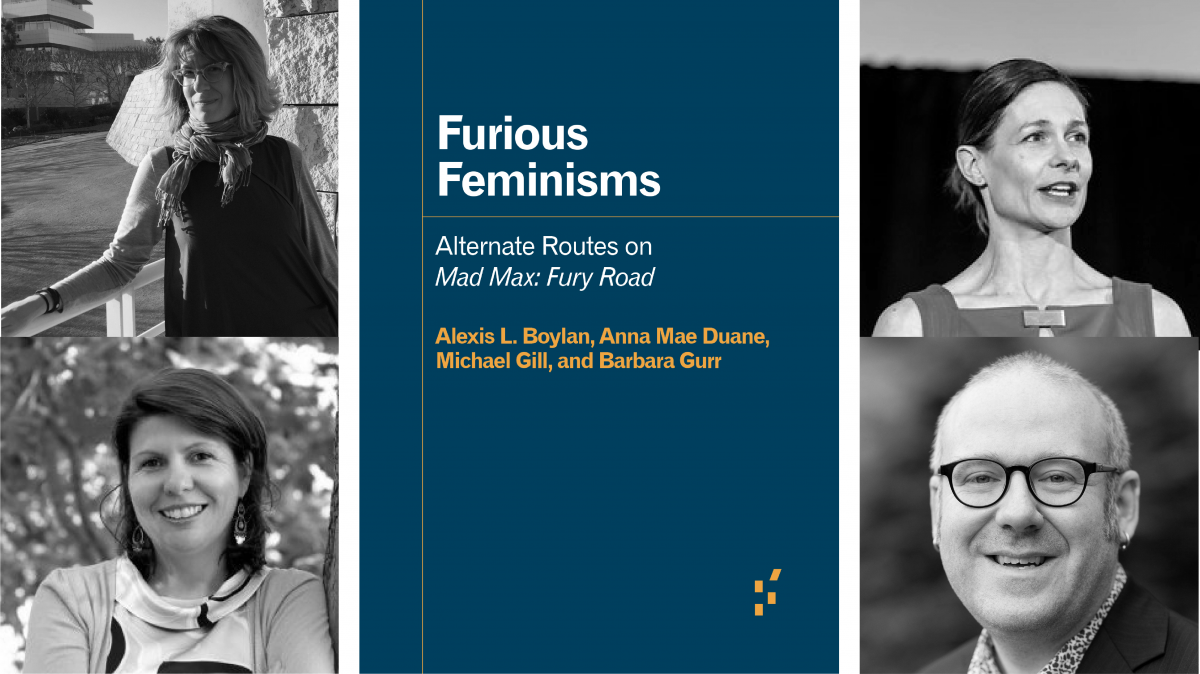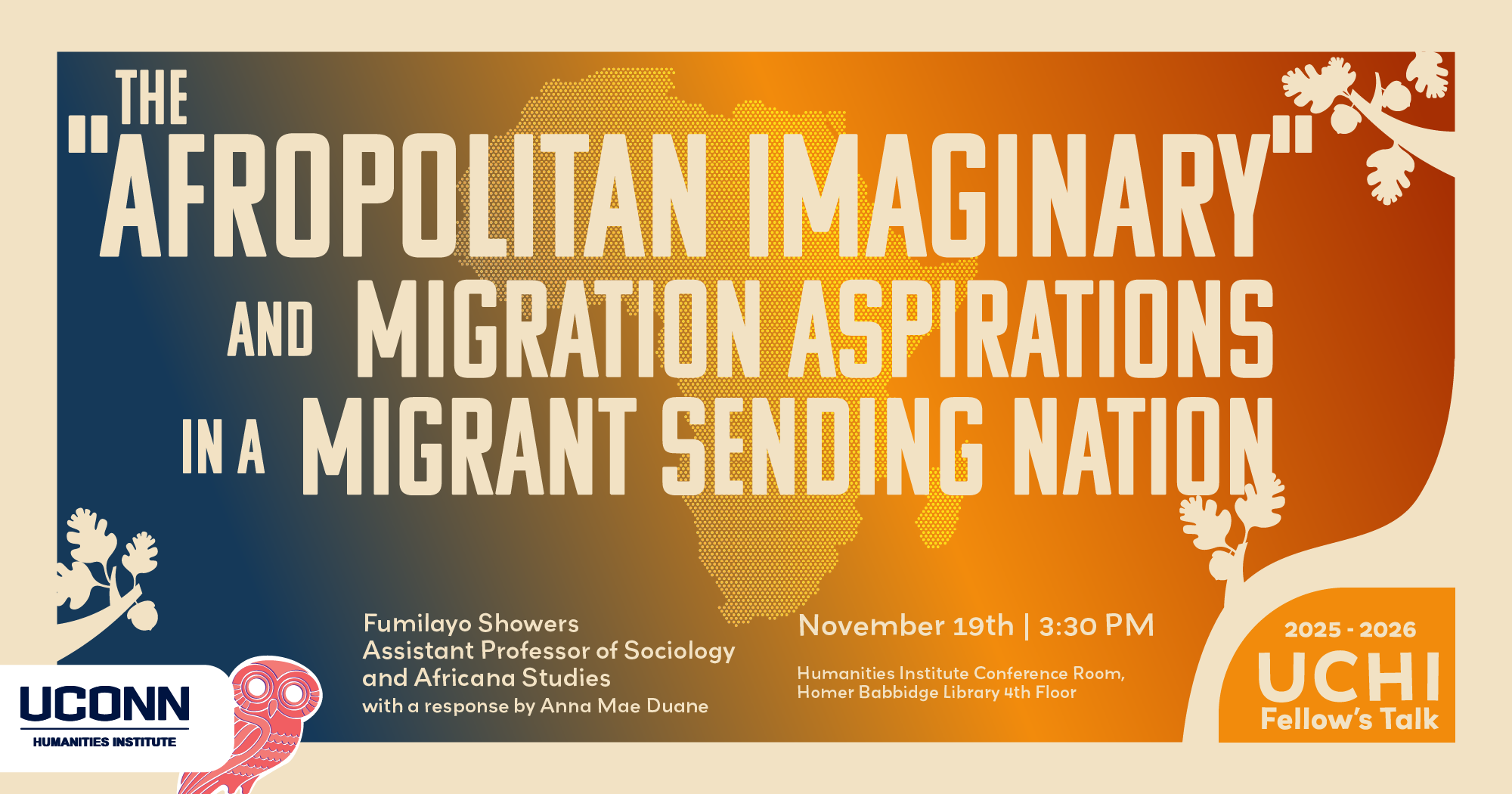
The “Afropolitan Imaginary” and Migration Aspirations in a Migrant Sending Nation
Fumilayo Showers (Assistant Professor, Sociology, UConn)
with a response by Anna Mae Duane (English, UConn)
Wednesday, November 19, 2025, 3:30pm, Humanities Institute Conference Room (HBL 4-209)
The event will also be livestreamed with automated captioning.
International migration conjures up high hopes and deep fears. Hopes for the migrants themselves, for those they leave behind in the sending nations from which they derive, and sometimes, fears for the receiving nations to which they arrive.
In this talk, I draw attention to migration aspirations—the first, but often understudied stage, in migration projects. I illuminate the experiences of a group of migrants that have received lesser attention in international migration/mobility scholarship—aspiring migrants (people who have yet to leave the home country). Drawing from a case study of medical students in Ghana, West Africa, (a group invisible in studies and depictions of the hypermobile and cosmopolitan international student), allows for engagement with articulations of Afropolitanism. Afropolitanism as an analytic concept, a cultural discourse, and a mode being in the world, highlights a subset of African-origin individuals as global citizens who are making claims to a cosmopolitanism that its proponents argue has previously been denied to Africans.
I provide a rich alternative to popular understandings of migrants as feverishly leaving at all costs in search of a “better life,” and neo-classical economic models of migration where migratory movements are narrowly attributed to rational economic cost-and-benefit analyses among individual actors. I argue that migration may be imagined as temporary and inspired by factors other than economic and socio-political ones, including affective, emotional, and cosmopolitan desires. I reveal migration desires that are imagined as part of a transient stage in the life course, to escape under resourced educational environments, build human capital, broaden life goals, and to return to contribute to the homeland.
Fumilayo Showers is Assistant Professor of Sociology and Africana Studies at the University of Connecticut. Her research interests center on international migration; immigrant labor and entrepreneurship; African immigrants in the US; and health professions (medicine and nursing). She is the author of Migrants Who Care: West Africans Working and Building Lives in US Health Care (Rutgers University Press, 2023).
Anna Mae Duane is Professor of English and Director of the UConn Humanities Institute. She teaches and writes in the fields of American Studies, African American Literature, and the Medical Humanities. She’s particularly interested in how definitions of youth and childhood shape culture and policy in ways that require the abdication of rights in order to claim care. She is the author or editor of six books including Educated for Freedom: The Incredible Story of Two Fugitive Schoolboys who Grew Up to Change a Nation, and Child Slavery Before and After Emancipation: An Argument for Child-Centered Slavery Studies. Her work has been supported by the National Endowment for the Humanities, the Fulbright Foundation, and the Japan-US Friendship Commission.
Access note
If you require accommodation to attend this event, please contact us at uchi@uconn.edu or by phone (860) 486-9057. We can request ASL interpretation, computer-assisted real time transcription, and other accommodations offered by the Center for Students with Disabilities. Requests should be made at least five business days in advance whenever possible.
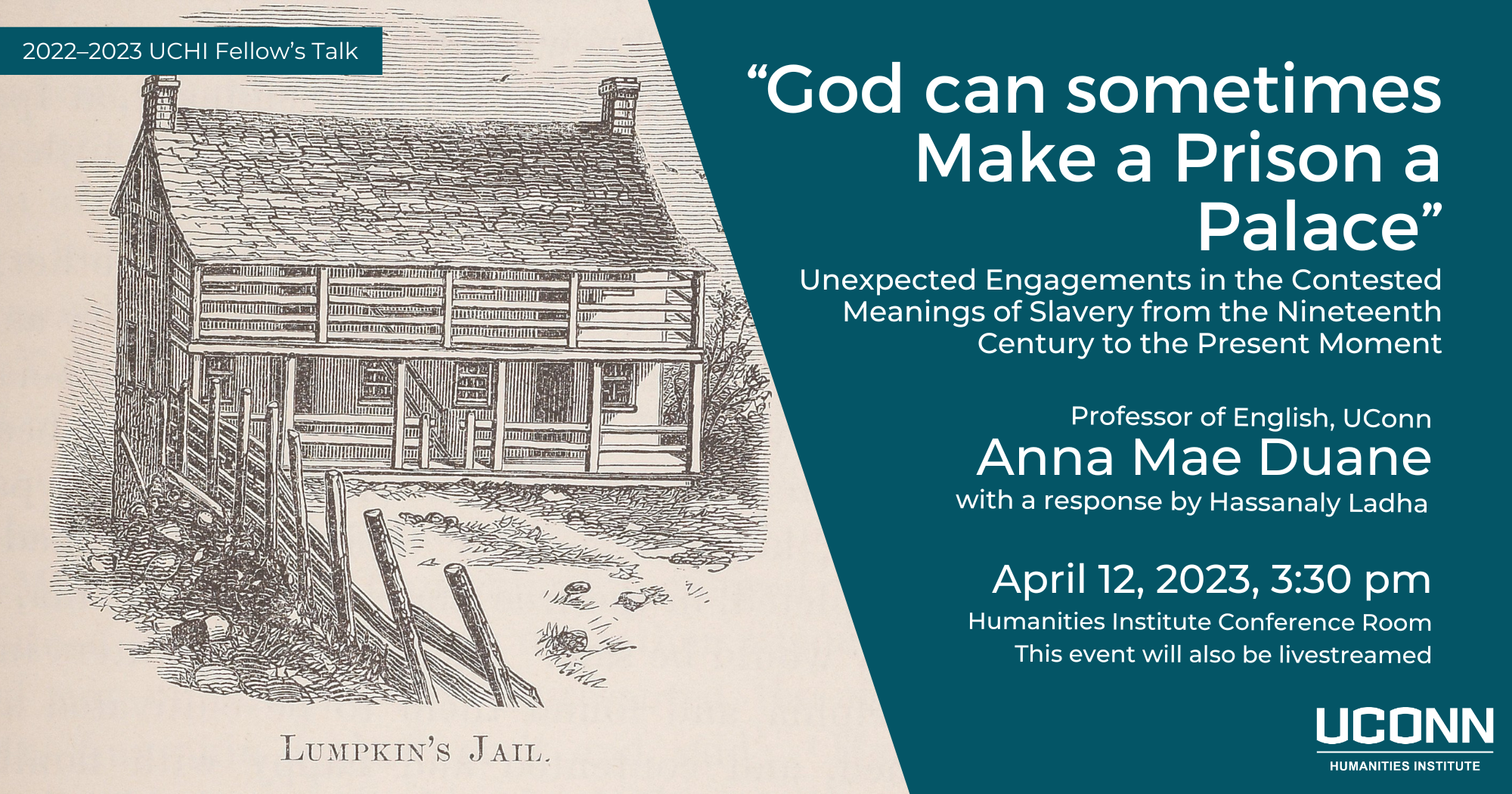
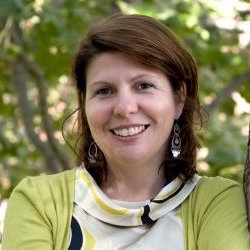
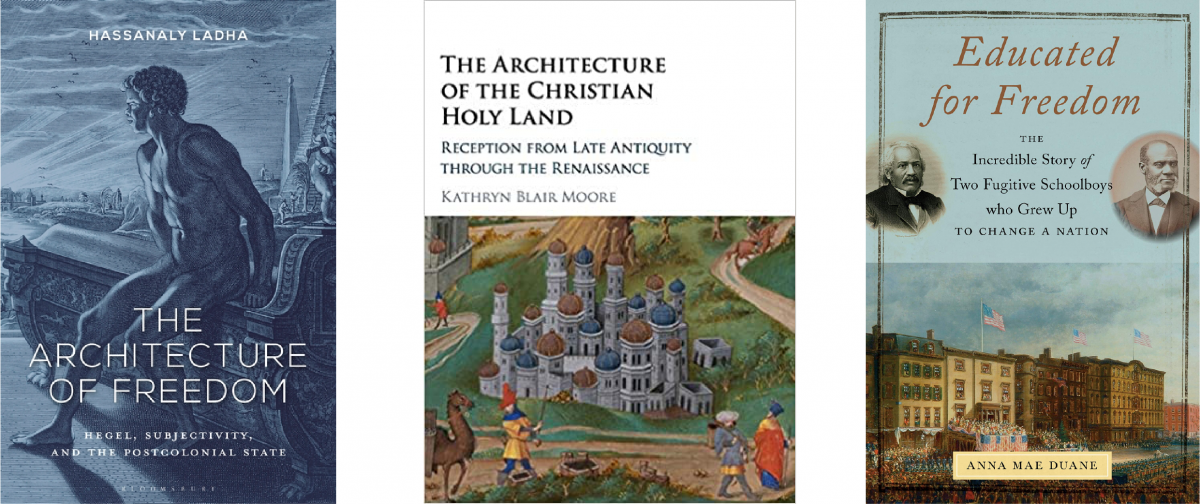
 Kathryn Blair Moore, The Architecture of the Christian Holy Land: Reception from Late Antiquity through the Renaissance (Cambridge University Press, 2017)
Kathryn Blair Moore, The Architecture of the Christian Holy Land: Reception from Late Antiquity through the Renaissance (Cambridge University Press, 2017) Hassanaly Ladha, The Architecture of Freedom: Hegel, Subjectivity, and the Postcolonial State (Bloomsbury, 2020)
Hassanaly Ladha, The Architecture of Freedom: Hegel, Subjectivity, and the Postcolonial State (Bloomsbury, 2020) Anna Mae Duane, Educated for Freedom: The Incredible Story of Two Fugitive Schoolboys Who Grew Up to Change a Nation (NYU Press, 2020)
Anna Mae Duane, Educated for Freedom: The Incredible Story of Two Fugitive Schoolboys Who Grew Up to Change a Nation (NYU Press, 2020)